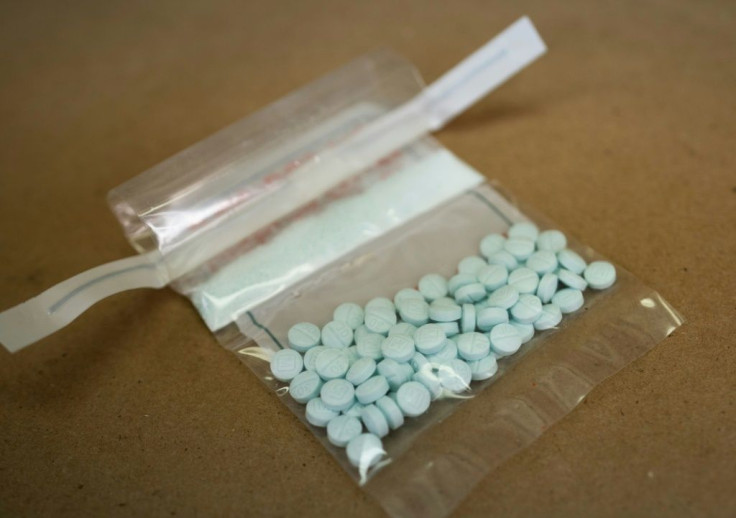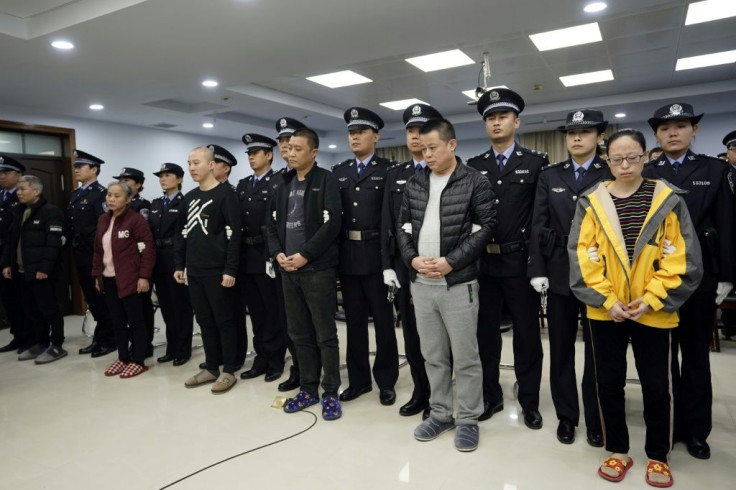China Jails Nine For Selling Fentanyl Into US

China on Thursday jailed nine people for selling fentanyl to Americans, the result of a landmark joint probe, and pledged further co-operation following President Donald Trump's fury at Beijing's perceived inaction against Chinese suppliers fuelling the deadly US opioid crisis.
Despite Trump's criticism earlier this year that Beijing had reneged on its promise to crack down on the production of the drug, China said it was "willing to conduct sincere and concrete anti-drug cooperation" with the US to tackle fentanyl trafficking.
The sentencing also came as the global powers are seeking to finalise a trade deal following more than a year of bruising negotiations, with the flood of Chinese fentanyl one of the sticking points.
US authorities say the synthetic opioid -- which can be up to 50 times more potent than heroin -- causes more than 100 deaths a day in the United States.
The court in northern Hebei province described the case as the first successful joint US-Chinese probe related to fentanyl smuggling, and US officials also hailed the verdict.
"As the success of the joint investigation demonstrates, Chinese and American investigators have the capacity to collaborate across international borders," Austin Moore, an attache for the US Homeland Security Department in China, said at a press conference with Chinese officials following the sentencing.
An official Chinese statement issued after the sentencing hailed the case as an "excellent model for the joint tackling of fentanyl-related crimes by Chinese and US drug enforcement departments."
China's narcotics bureau discovered in 2017 a criminal ring based in Shanghai and eastern Jiangsu province and seized 11.9 kilogrammes of fentanyl, acting on a tip-off from US border authorities, according to the court.
Of the nine people jailed in Hebei, one was given a death sentence with a two-year reprieve, which generally means a life term.
Two others received life terms for trafficking fentanyl and alprazolam -- the hugely popular prescription anxiety drug branded as Xanax.
The nine defendants were brought in surrounded by guards and stood facing court officials to hear their sentences read.
The three defendants with the toughest sentences were "lured by high profit and huge demand" from US buyers, the Xingtai Intermediate People's Court said.
In November 2016, two of the defendants began advertising drugs through the internet using companies they had registered for pharmaceutical sales operations, the court said in a statement.
In 2017 two other defendants -- including Liu Yong, who was given the suspended death sentence -- set up a processing lab where they illegally processed fentanyl and sold it to these companies to smuggle to the US.
Moore said officers in New Orleans obtained in August 2017 the contact details of a supplier in China known as "Diana".
The Americans then shared the information with Chinese counterparts and the investigation led to the arrests at the end of 2017, Moore said.

China in May began designating all variants of fentanyl as controlled substances, a move welcomed by Washington.
The drug had previously often slipped past law enforcement due in part to the ability of drug makers to tweak formulas and create fentanyl analogues not restricted by existing Chinese law.
Nevertheless, Trump announced new tariffs on China over the summer as a response to what he saw as China's continued failure to stem the flow of fentanyl into the US.
The two countries have since pledged to work together to fight the proliferation of the drug.
The White House's "drug czar", Jim Carroll, said after meetings with Chinese officials in September that he was convinced that Beijing was committed to going after traffickers.
On Thursday Carroll welcomed Beijing's "positive step in following through on the pledge secured by President Trump".
Yu Haibin, from China's National Narcotics Control Commission, said at the press conference that Beijing had maintained "close and good cooperation" with US law enforcement departments.
However, Yu said accusations that China was the main source of the opioid in the US were untrue.
He said American deaths from overdoses had continued to rise even as Beijing's control over fentanyl-related substances had tightened.
In October, three Chinese citizens were charged by US authorities with distributing the drug in the United States.
But experts warned much more work was needed to stamp out the drug trade to the US.
"It is good to see the Chinese government working on a fentanyl case with their American counterparts," Scott Stewart, a security analyst at Stratfor, told AFP.
"But until they address the deeper problems, such as the tax credits companies get for selling certain chemicals, and go after the powerful players, they are not going to be able to stop the flow of fentanyl and fentanyl precursors."
tjx-rox/rma
© Copyright AFP 2024. All rights reserved.





















